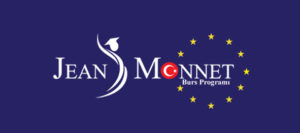
Strengthening the Internal Market
Project is comprised of six components, as follows: Component 1: Improving the strategic, legislative and institutional framework in area of Free Movement of Goods Component 2: Improving the strategic, legislative and institutional framework in area of Free Movement of Services. Component 3: Improving the legislative alignment with the

Increasing Attractiveness, Inclusiveness and Relevance of VET and Adult Education
The overall objective is to improve skill matches of youth and adults in line with labour market needs by increasing access to quality vocational education, training and adult education. The project supports the Ministry of Education and Science of the Republic of Nort Macedonia and related national educational

Technical Assistance for Sorgun Enterprise Development Centre (İŞGEM)
This project was a component of the Regional Competitiveness Operational Programme which is part of the Instrument for Pre-Accession and is designed to support Turkey’s convergence with the EU by increasing the competitiveness of the Turkish economy and reducing regional socio-economic disparities. The project was designed to provide

Improvement of Legislation, Control and Awareness in Food Safety, Animal Health and Welfare in Ukraine
The project aims to support the implementation of the Association Agreement’s provisions between the EU and Ukraine concerning food safety, animal health, and welfare.

Technical Assistance for Jean Monnet Scholarship Programme
Turkey’s negotiations in pursuit of full membership in the European Union (EU) place significant responsibilities on all sections of Turkish society. This fact means that Turkey needs individuals from all parts of society who can closely follow and contribute to EU-related issues. In this context, the specific purpose

Technical Assistance for Supporting the Solution of Economic and Social Integration Problems in Diyarbakır, Şanlıurfa, Gaziantep, and Erzurum, as Major In-Migrant Destinations
Rapid migration in major urban areas, namely Diyarbakır, Şanlıurfa, Gaziantep and Erzurum (DGES), have adverse impacts in Turkey. To reduce these unfavourable effects, EKOSEP aimed to support social integration and environment-related infrastructure problems due to migration in the selected provinces in a multi-actor manner. Furthermore, it aimed to

